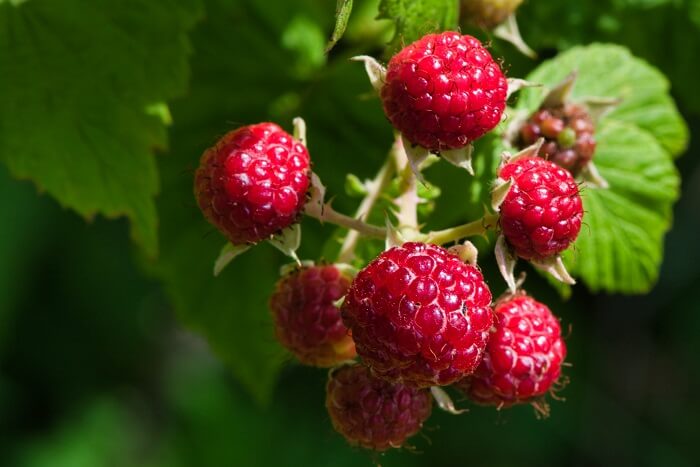By Sayer Ji | Guest Writer
-
Tomatoes
Whether turned into soup, roasted, pickled or added to your homemade bruschetta, tomatoes rarely run out of use in a busy kitchen. However, they are also popular for being one of the richest sources of lycopene in the Western world.
Lycopene is a naturally occurring red carotenoid that offers the rich pigment of tomatoes, watermelon and other fruits. It has been extensively probed for over 70 years, if more than 2,000 articles in peer-reviewed journals and 4,000 other publications on the subject are any indication.
Scientists have long attributed the association of tomatoes with reduced cancer and cardiovascular disease to lycopene, primarily because of its antioxidant properties.
In a study, researchers speculated on the link between lycopene and a lower incidence of cardiovascular conditions. They looked at the effect of lycopene and tomatoes on oxidized LDL cholesterol, finding a modest benefit against oxidative stress affecting LDL cholesterol levels. They also probed three tomato studies and one lycopene study finding improved HDL cholesterol.
-
Cucumbers
The saying “cool as a cucumber” couldn’t be any more accurate, particularly on sweltering August days when everybody needs something refreshing. You’ll find here a cool cucumber and avocado soup recipe for those relentlessly warm days.
Cucumbers won’t get left behind when it comes to health perks. They have a high water content and are in fact made up of 96% water. Low-calorie and extremely hydrating, cucumber can also help slash the excess pounds: an analysis of 13 studies involving 3,628 people associated foods with high water and low calorie content with a significant reduction in body weight.
In an animal study examining the impact of plants on blood sugar, cucumbers also surfaced as an effective weapon to reduce and keep sugar levels under control.
-
Bell Peppers
A cousin of the well-loved tomato in the nightshade family, bell peppers are a popular pick for easy summer salads, the favourite stuffed green pepper and as part of side dishes during steak and fajita nights. They are not only a hearty addition to summer meals but also rich in antioxidants whether in green, yellow, orange or red sweet varieties.
Lutein and zeaxanthin, both of which are abundant in orange and yellow peppers, help improve eye health. Bell peppers’ exceptionally high vitamin C content also helps increase iron absorption from the gut.
-
Melons
A refreshing summer treat, melons such as cantaloupe, watermelon and honeydew are part of the Cucurbitaceae family along with cucumber. Cantaloupe is known by different names including mush melon, muskmelon and rock melon.
Melons are rich in vitamin A, offering 299.13 micrograms (mcg) or 33% of the recommended dietary intake (RDI) in a 177 gram (g) serving. They are also chock full of vitamin C in every serving, packing 65 milligrams (mg) or 72% of the RDI.
Vitamin C, along with fibre, potassium and choline, support cardiovascular wellness. Potassium, which is plenty at 473 mg or 10% of the RDI in the same serving, can help reduce blood pressure and keep it at healthy levels.
As a good source of folate providing 8% of the RDI, melons may also help maintain strong bones, as folate is essential in breaking down homocysteine – increased levels of which have been tied to decreased bone mineral density.
-
Berries
What would warm late-summer days be like without the colours and tangy taste of berries in sorbets, puddings and easy salads? This group is deemed one of the healthiest on the planet, mainly because they are loaded with antioxidants for keeping free radicals and the cell damage and oxidative stress they cause at bay.
In a study, blueberries, blackberries as well as raspberries had the highest antioxidant activity among common fruits, right next to the pomegranate. Harvard researchers noted that consuming three or more servings of blueberries and strawberries weekly can lower the risk of heart attacks in women.
Based on their examination of 93,600 women ages 25 to 42 as part of the Nurses’ Health Study II, they concluded that at least three servings of the berries every week can slash heart attack risk by as much as one-third. Berries are also considered effective brain protectors and cancer fighters.
Find a rich collection of scientific findings on fruits and vegetables on the GreenMedInfo.com database and have a fresh feast on your table as summer draws to a close.
About the Author
Sayer Ji is the founder of Greenmedinfo.com, a reviewer at the International Journal of Human Nutrition and Functional Medicine, Co-founder and CEO of Systome Biomed, Vice Chairman of the Board of the National Health Federation, and Steering Committee Member of the Global Non-GMO Foundation.
© 2020 GreenMedInfo LLC. This work is reproduced and distributed with the permission of GreenMedInfo LLC. Want to learn more from GreenMedInfo? Sign up for their newsletter here.

